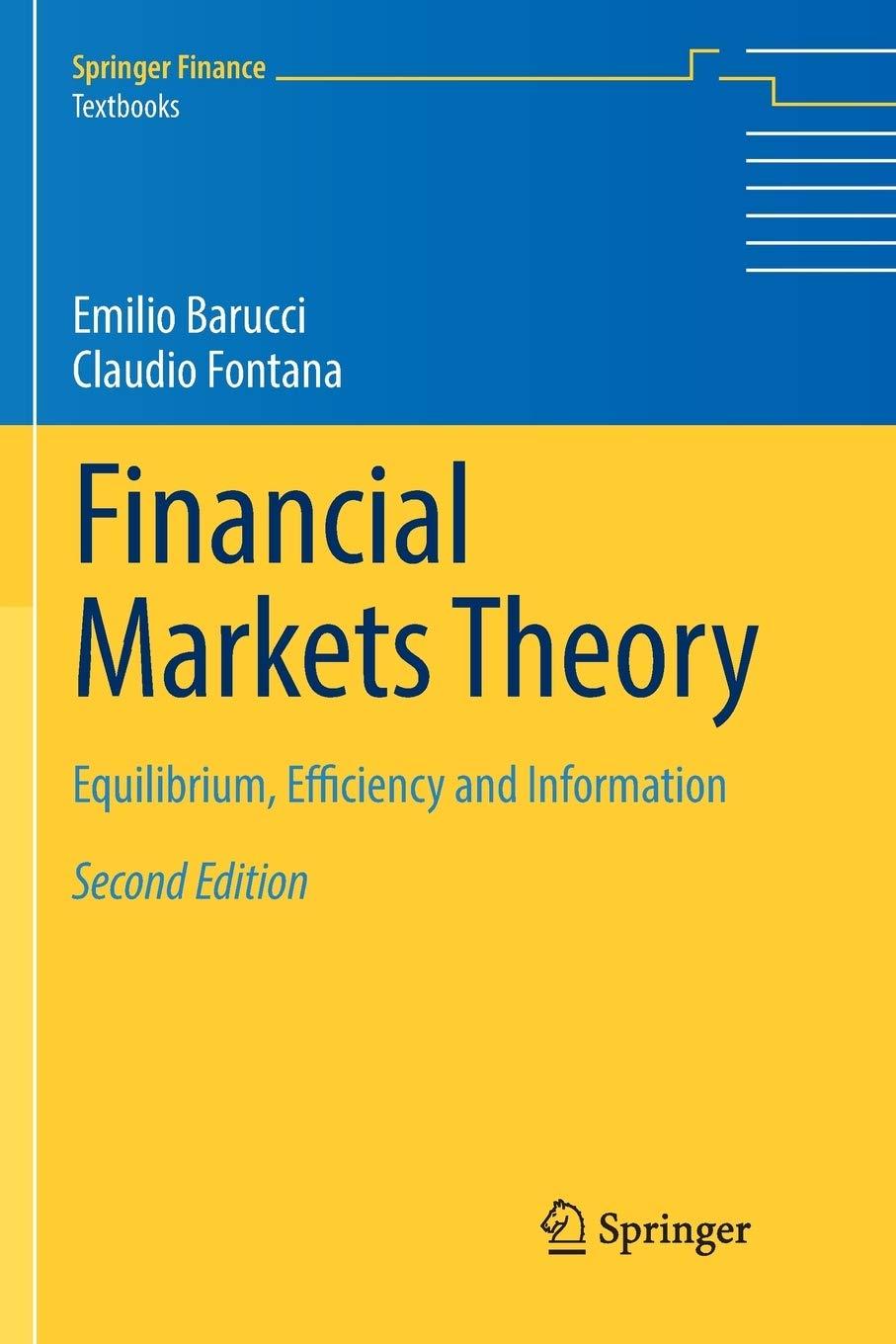(Hens & Rieger [938], Corollary 2.31) Suppose that the expected utility function (mathbb{E}[u(tilde{x})]) of a risk averse...
Question:
(Hens \& Rieger [938], Corollary 2.31) Suppose that the expected utility function \(\mathbb{E}[u(\tilde{x})]\) of a risk averse agent can be represented through a continuous mean-variance function \(V\left(\mathbb{E}[\tilde{x}], \sigma^{2}(\tilde{x})\right)\), strictly increasing in the first argument, for any \(\sigma^{2}(\tilde{x})\). Then the preference relation represented by \(\mathbb{E}[u(\tilde{x})]\) does not satisfy the independence axiom.
Fantastic news! We've Found the answer you've been seeking!
Step by Step Answer:
Related Book For 

Financial Markets Theory Equilibrium Efficiency And Information
ISBN: 9781447174042
2nd Edition
Authors: Emilio Barucci, Claudio Fontana
Question Posted:





